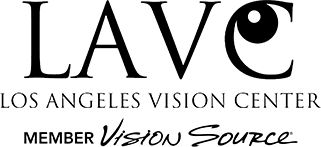Address:

Myopia, or nearsightedness, is one of the most common vision conditions affecting both children and adults. While mild myopia can often be managed easily with glasses or contact lenses, high myopia poses more serious risks to long-term eye health. Understanding these risks can make all the difference in preserving your vision for years to come.
What Is High Myopia?
High myopia typically refers to nearsightedness greater than -6.00 diopters. In this condition, the eyeball becomes elongated, causing light to focus in front of the retina rather than directly on it. This elongation not only blurs distance vision but also increases stress on the internal structures of the eye. People with high myopia face a higher risk of developing several serious eye conditions.
Retinal Detachment
As the eye stretches, the retina (the light-sensitive layer at the back of the eye) becomes thinner and more fragile. Even minor trauma or sudden eye movement can cause the retina to tear or detach, leading to vision loss if not treated promptly.
Glaucoma
High myopia has been linked to an increased risk of glaucoma, a condition in which elevated pressure within the eye damages the optic nerve. Because symptoms often develop slowly, routine eye exams are crucial for early detection.
Myopic Maculopathy
Over time, the excessive stretching of the retina can cause degenerative changes in the macula, leading to distorted or lost central vision. This condition, known as myopic maculopathy, is one of the leading causes of visual impairment in highly myopic individuals.
Cataracts
High myopia can accelerate the natural aging process of the eye’s lens, leading to earlier onset of cataracts and cloudy vision. This can result in increased glare sensitivity, blurred vision, and difficulty seeing clearly even with corrective lenses.
The Importance of Myopia Control
While myopia cannot be reversed, myopia control treatments can slow its progression - especially when started at a young age. At Los Angeles Vision Center, we offer several evidence-based options to help manage myopia, including:
• Orthokeratology (Ortho-K): Special overnight contact lenses that temporarily reshape the cornea to improve vision and slow eye elongation.
• MiSight® 1 day Lenses: FDA-approved soft contact lenses designed specifically to slow myopia progression in children.
• Atropine Eye Drops: Low-dose atropine therapy has been shown to reduce the rate of myopia progression in children safely and effectively.
• Lifestyle Recommendations: Encouraging outdoor time, proper visual breaks, and reduced screen time can also help maintain healthy vision habits.
The earlier myopia control begins, the more effectively we can slow eye growth and reduce the risk of complications later in life. Regular comprehensive eye exams allow our doctors to track changes and tailor treatment to each patient’s unique needs.
Schedule a Myopia Control Consultation Today
High myopia is more than just stronger glasses - it’s a condition that can affect your lifelong vision health. With proper monitoring and proactive treatment, you can minimize the risks and protect your eyesight for the future.
Contact Los Angeles Vision Center to schedule a comprehensive eye exam and learn more about our myopia control options. Visit our office in Los Angeles, California, or call (323) 934-2020 to book an appointment today.





